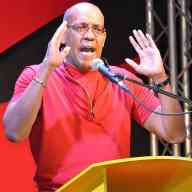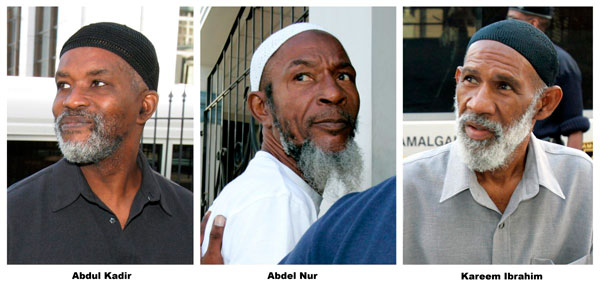Most governments in the 15-nation Caribbean Community (CARICOM) are staying under the radar when it comes to commenting on international terrorism issues, preferring to leave it up to the larger and more powerful western nations, which are now targets of the Islamic State fighters.
But this is not the case in the region’s largest economy, Trinidad, where memories are still fresh about the July 1990 attempted coup by a group of 114 rebel Muslims that killed nearly 30 people and had also involved arson attacks in commercial Port of Spain, the storming of parliament, the state television station and other institutions.
Debate in the country’s parliament as well as social media is currently hot on the issue, especially because authorities had in the past week released figures showing that nearly 90 Trinidadian nationals have gone abroad in the past two years to fight religious and ideological causes in the Middle East.
But what happens to these fighters if they return home. What laws are there to ensure their arrest and detention, banishment from society and even criminal conviction?
Newly minted National Security Minister Edmund Dillon said this week there is precious little authorities could do to returning fighters as they had committed no crime on Trinidad’s soil. They are free to return, unhindered and to resume where they had left off.
“As citizens of Trinidad and Tobago, there is no law in place to stop them from coming home. If they have committed an international crime, we will work with our international partners to bring them to justice but for now, they are still citizens of Trinidad and Tobago,” said Dillon, a retired army general appointed as security minister after the early September general elections.
But asked directly what the situation should be giving events in France and other parts of Europe this week, Dillon was more forthcoming, admitting that authorities are reviewing the situation.
He said officials are talking with Attorney General Faris al Rawi about a new approach to returning fighters but he would not give details.
“This government wants to make it abundantly clear that it recognizes the global threat posed by ISIS and the horrific atrocities recently committed on the French people by the ISIS phenomena,” Dillon said in the senate this week.
Still he said T&T is stepping up immigration and customs control systems, beefing up aerial and maritime surveys, improving intelligence sharing among agencies and collaborating more closely with international partners.
But even as Trinidadian authorities remain alert and move to improve legislation regarding returning fighters, neighboring Caribbean governments are deliberately playing it low key, clearly keeping out of a fight that for now has nothing much to do with them. Most just issued statements condemning simply condemning the weekend attacks but it would not be surprising in the coming months if other governments move to follow TT’s lead and amend local laws.
“There are big concerns in T&T about this. Many tell me they are concerned we are exporting jihadists and that those people who are experienced in fighting in such situations might return with their ‘expertise’ and we in T&T would be at greater risk once they return with foreign ideologies and skills,” said opposition Senator Wayne Sturge.























